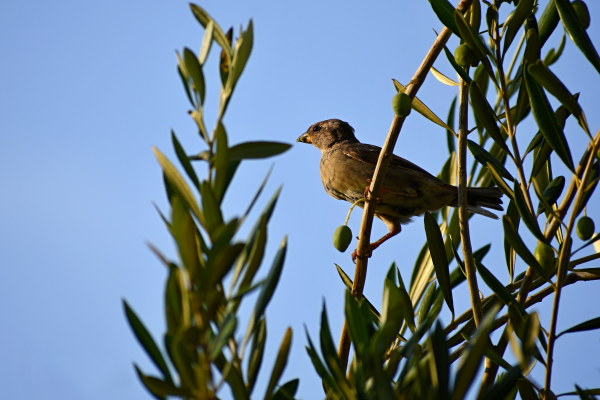Every year, millions of migratory birds are killed across the Mediterranean due to the intense olive harvesting practices employed on large-scale, industrial groves. The seemingly idyllic process of the olive harvest has unintended consequences for our feathered friends. The issue of bird deaths resulting from intense olive harvesting has become a concerning problem in many Mediterranean countries, including Italy, which are yet to ban this destructive practice.
Italy, with its diverse landscapes and abundant natural beauty, serves as a home to a wide variety of bird species. Many of these birds choose to make their nests in the olive trees, finding safety and shelter within the branches. These migratory birds play a vital role in local ecosystems by helping to control insect populations and spread the seeds of native plants and wildflowers throughout the groves, contributing to the overall health and biodiversity of the region.
Unfortunately, the olive harvest period coincides with the migratory patterns of several bird species, which seek out the mild climate of the Mediterranean in the winter months. To save money and time, large-scale producers often choose to harvest their olives at night when the temperatures are cooler, and the birds are resting. Bright lights and heavy machinery are used, and the loud noise and bright lights disorientate the birds. The machinery, designed to vacuum the olives straight off the trees, unintentionally sucks in these birds, leading to their tragic deaths in shocking numbers. Despite being protected under EU laws, the bird populations are being negatively impacted. Among the species at risk are the European robin, warbler, thrush, wagtail, and several species of finches.
At Nudo, we only ever harvest the olives by hand, using specialised rakes to gently shake the tree branches, catching the olives below in large nets. Our farmers do not harvest at night, and instead begin the harvest in the early morning, sending the olives to a local mill within 24 hours of picking. It’s a long and hard day's work for our farmers, but it’s worth it, knowing that we are not contributing to the devastating loss of wildlife, which must be protected at all costs.
Although initially brought to the attention of the media in 2019, the Italian government has yet to publish any data on the number of bird deaths in Italy and has yet to enact any legislation to ban this destructive and disturbing practice.
How you can help:
Educate your friends and family on the harmful impacts of intense, modern olive farming methods.
Shop for extra virgin olive oil that is harvested by hand

